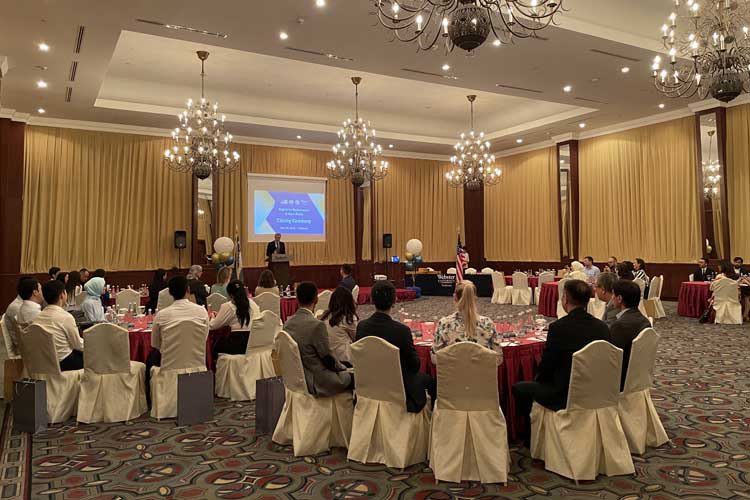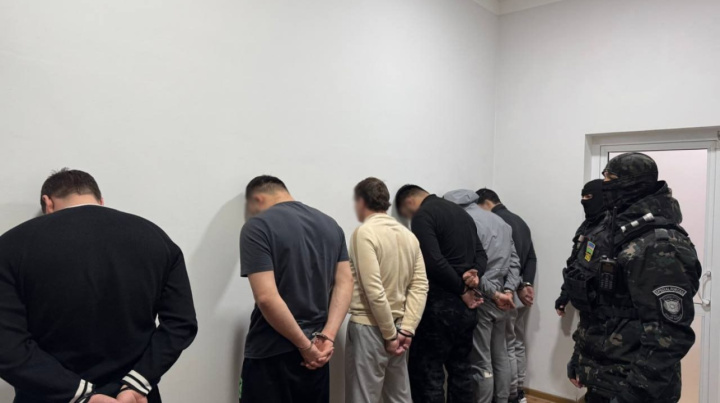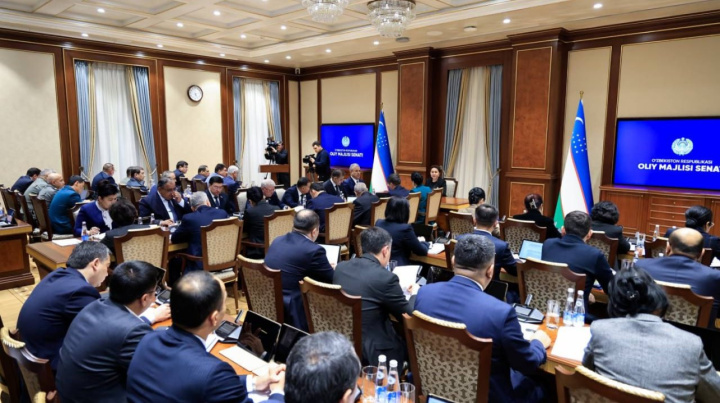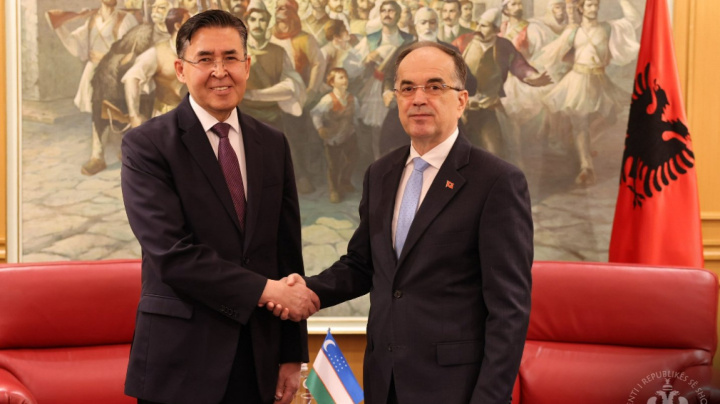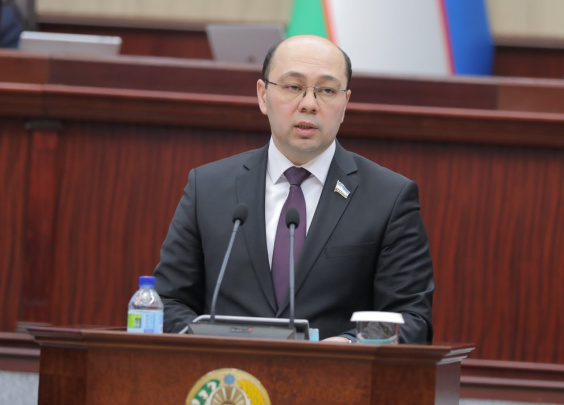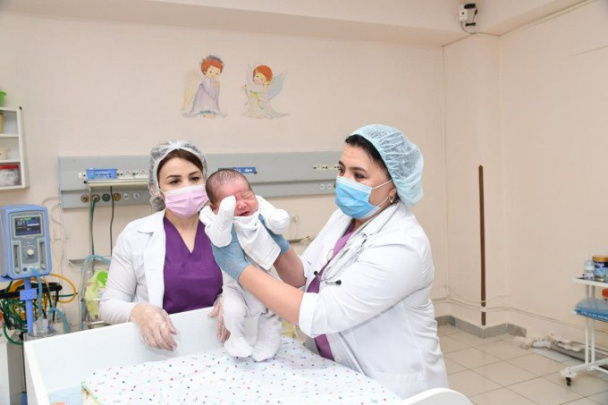US Ambassador to Uzbekistan Daniel Rosenblum recently spoke to the English for Professionals in Mass Media (EPMM) alumni. During his speech, he expressed his opinion about work of the mass media in the country. The diplomat said that there is too much self-censorship in the sphere, and many journalists are afraid to cross the “red line”. He also spoke about how journalists copy-pasted the statements of some officials, without delving into the essence of the matter.
The press service of the US Embassy published the text of the diplomat’s speech.
“In April, just last month, many of us – and I believe many of you in this room – were surprised to learn that Uzbekistan improved its ranking in the Reporters Without Borders World Press Freedom Index for 2022, rising from 157th place to 133rd place. The way this news about the rating was reported here in Uzbekistan was quite interesting to me: most of the media simply reported that the rating had risen by 24 positions, and quoted the presidential press secretary, Mr. Asadov, or the chairman of the board of the Media Support Fund, Mr. Allamjonov, who considered in this international recognition of the significant progress of Uzbekistan in creating a freer environment for the media. To be fair, Mr. Allamjonov also noted the importance of measures to improve in this area, stating that “if there were less interference in the work of the press, then we would have the opportunity to rise to an even higher level,” the diplomat said.
In his opinion, several media outlets outside of Uzbekistan noted that there is more to this story than it seems at first glance and the real story is hidden behind the superficial story.
“And I think you will all agree with me that the job of professional journalists is to find and tell the “real story”. The point is that there is a more complex reason behind Uzbekistan’s significant rise in the rankings, which has nothing to do with better conditions for free and independent media or better treatment of journalists and bloggers. The fact is that for its 2022 World Press Freedom Index, Reporters Without Borders (also known as Reporters Sans Frontieres in French, i.e. RSF) has completely changed the methodology for assessing countries. They introduced five new press freedom indicators and used new types of surveys to measure the country’s performance on each of these indicators,” Daniel Rosenblum said.
According to him, as a result of this change in methodology, many countries have switched places both up and down. At the same time, the score of Uzbekistan - the number that is given to assess the country’s ranking - the score in the world press freedom index 2022 has decreased compared to 2021. It decreased from 49.26 in 2021 to 45.74 in 2022.
The diplomat stressed that Uzbekistan’s scores have decreased.
“I will also quote a few excerpts from the RSF report that accompanied the 2022 World Press Freedom Index rankings: The authorities largely control the media, as well as a number of bloggers with close ties to the government… The authorities have not yet implemented the reforms necessary to repeal the laws allowing repression against the media. Surveillance, censorship and self-censorship are widespread… Officials practice economic pressure and attempts to bribe journalists… The last imprisoned journalists have been released but not rehabilitated… Bloggers have been threatened and arrested”. These are all quotes from the RSF World Press Freedom Index report,” the ambassador said.
Rosenblum stated that it is important to be honest and balanced in your reports, not only for professional journalists, but also for ambassadors, that is, to be as fair and balanced as possible.
“And that often means providing a meaningful context for journalistic stories. And a meaningful context for the story of Uzbekistan’s ranking in the RSF Press Freedom Index 2022 should also include the recognition that the environment for journalism and the degree of media freedom and media diversity in Uzbekistan
today has improved significantly compared to six years ago. At least that’s my opinion. I would be interested to hear your opinion, but my opinion is based on what I saw and heard when I came here before 2016, and what I saw, read and heard from conversations with journalists around the country - after 2016, the situation as a whole has improved significantly in terms of the degree of freedom and diversity of the media, as well as the conditions for journalists,” he said.
In addition, the head of the diplomatic mission said that since 2016, cardinal and generally positive changes have taken place in the media landscape. Journalists have more opportunities than ever before to report on what is really going on in a country, in government or in society. At the same time, there are serious shortcomings in the legal framework for the media; shortcomings in the attitude of too many officials to the media; in the professional standards and ethics that exist for journalists; and most importantly, the ability of journalists to work without pressure and intimidation, especially when they cover topics that some consider politically sensitive.
“There is too much self-censorship as journalists find out which “red lines” they cannot cross because they are made to be afraid of crossing those lines. And I would say that these shortcomings have become even sharper and more noticeable in the past year. That is why I and many other observers of Uzbekistan were so deeply surprised to see the news about the rankings of the world press freedom index. They were surprised, that is, until they found out what the story was behind the story!” he said.
He also emphasized that “there are more opportunities in Uzbekistan than ever before for representatives of the media”.
“The opportunity to give your fellow citizens a voice they might not otherwise have, to make sure their concerns are heard. There are more opportunities now than ever to write about interesting and important issues that affect people’s daily lives. There are now more opportunities than ever before to hold officials accountable for their actions, to ensure, as President Mirziyoyev has repeatedly said, that the state serves the people, and not vice versa! I hope and believe that you - brave, hardworking and dedicated representatives of the so-called “fourth estate” - have found these English courses useful for your daily journalistic work. I hope that these courses will help you continue your honorable work at an even higher and more professional level. I admire you and what you do so much,” the diplomat concluded.

